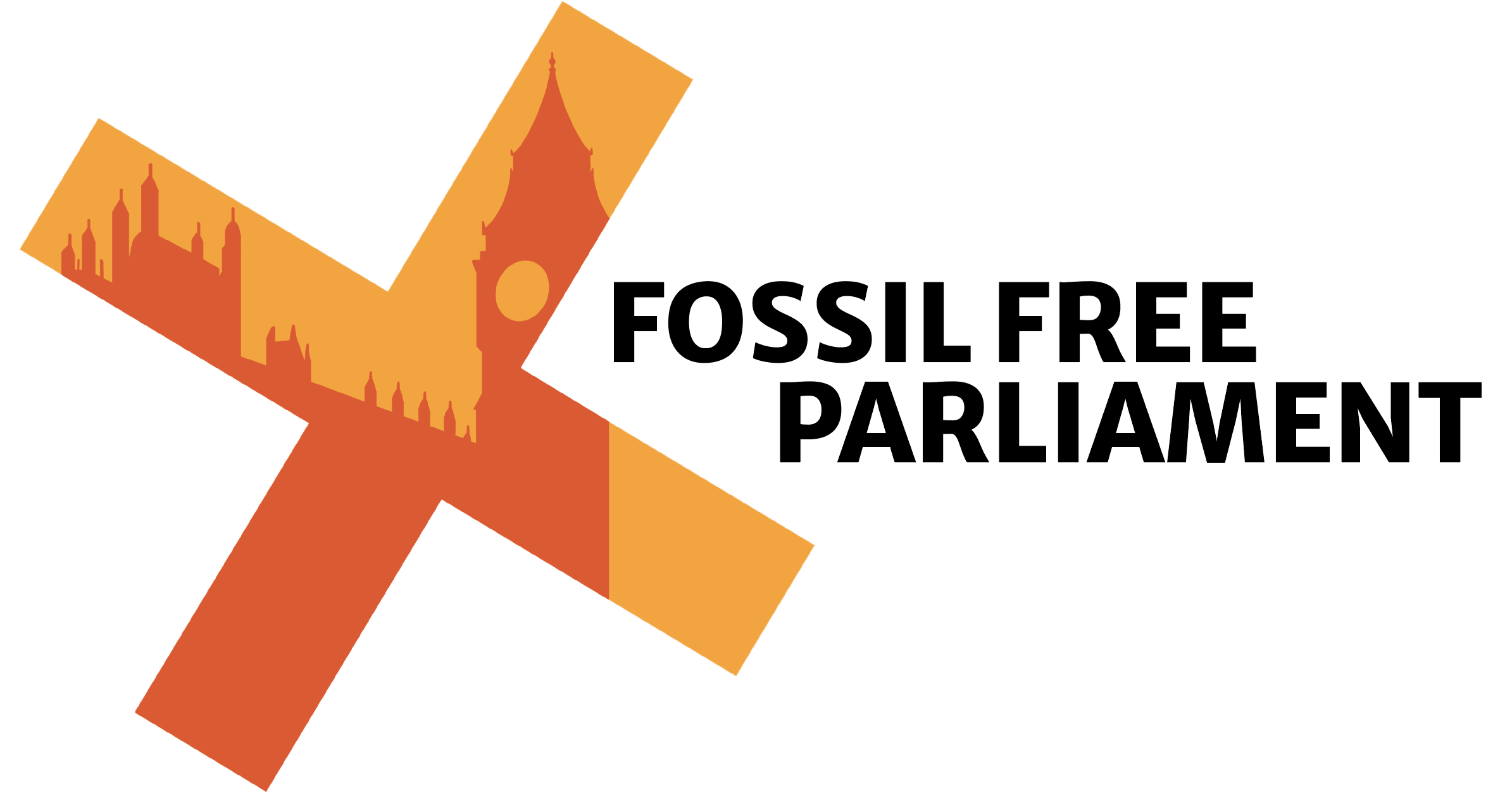Read the full story as covered by DeSmog on 11 December 2023
Fossil Free Parliament and DeSmog have uncovered 12 APPGs with connections to the fossil fuel industry, including three that have received benefits worth more than £240 000 from oil-and-gas-funded think tanks.
APPGs – or All-Party Parliamentary Groups – are informal collectives of MPs and Peers around a particular theme (such as “Climate Change” or “American Football”). They discuss issues pertaining to that theme and attempt to influence relevant policy areas. They are required to register financial interests and “benefits in kind” – services at a reduced rate or free. However, the House of Commons Committee on Standards has found that these requirements do not go far enough to ensure that APPGs are transparent and accountable, and stated in their recent report on APPGs that:
There appears to be the real possibility of APPGs having been set up at the suggestion of, and as a result of lobbying by, a commercial interest. We are concerned that if left unchecked, APPGs could represent the next great parliamentary scandal, with commercial entities effectively buying access to and influence of parliamentarians and decision-makers.
Unsurprisingly, the fossil fuel industry is among those “commercial entities” that have effectively infiltrated APPGs through the provision of funding and administrative support, both directly and indirectly.
Summary of findings:
The British Offshore Oil and Gas APPG
The APPG is co-run by trade body Offshore Energies UK (OEUK), the rebranded Oil and Gas UK, which also acts as its secretariat. As Fossil Free Parliament revealed in October 2023, OEUK used its position within the APPG to lobby against the windfall tax.
The Net Zero APPG
Chaired by Labour MP Alex Sobel, the Net Zero APPG says it works to “secure a low carbon and clean industrial and economic future for the UK [and] embed zero carbon solutions”. In January 2023, the group received up to £51,000 from Vision10, a policy group whose members include Calor Gas, the UK’s leading supplier of liquefied petroleum gas (LPG). Vision10’s membership also includes green groups and renewable energy companies.
The group’s website says its supporters include British multinational energy supplier Centrica, which owns British Gas, and French energy supplier EDF. Both provide gas for domestic heating, which accounts for 14 percent of the UK’s greenhouse gas emissions.
The Environment APPG
In December 2022, the APPG received a £5,000 donation from German energy company RWE, which is listed as an “associate member” on the group’s website. RWE runs the most polluting coal power plant in Europe. In 2022, 36 percent of RWE’s output was gas, compared to 33 percent renewable energy, including offshore wind.
The Hydrogen APPG
In February, the Hydrogen APPG received at least £70,000 worth of services to help run the group from Connect, a PR firm paid for by oil and gas companies.
The companies include Shell, Cadent and Equinor. Connect has provided similar funds in previous years, according to the register.
The Carbon Capture, Utilisation and Storage APPG
The CCUS APPG is co-run by a trade group called the Carbon Capture and Storage Association (CCSA). As DeSmog reported in September, nearly a fifth of the CCSA’s 100 members are oil and gas companies, including BP, ExxonMobil, Shell and Equinor.
The CCSA board is also dominated by key figures at oil and gas companies, including BP, Equinor, and Shell. CCSA is also part of Vision10, the policy group which donated to the Net Zero APPG.
The Energy Studies APPG
The stated objective of this APPG is to “advise the Government of the day on the energy issues of the day”. The APPG lists its associate members for 2021-22 as BP, Equinor, ExxonMobil, Cadent, and RWE. Additionally, Cadent is on its executive council for 2022-23.
The Carbon Monoxide APPG
In January, the APPG received up to £120,000 of benefits in kind from Policy Connect, a cross-party think tank which connects MPs with stakeholders on issues including industry and sustainability. According to its website, Policy Connect’s biggest funders, which donated £20-30,000, include gas distributors Cadent, Northern Gas Networks and Scotia Gas Networks.
The Corporate Governance APPG
The stated purpose of the Corporate Governance APPG “is to develop and increase understanding of corporate governance through the promotion of a culture based on responsible leadership and investments.” In April 2023, the APPG received a direct donation of £5000 from BP.
The Marine Energy APPG
The stated purpose of the APPG is to “promote the economic, supply chain and energy security benefits from the development of marine energy resources in and around the UK.” The APPG lists Renewable UK as its secretariat. The renewable energy trade body’s members include major producers of oil and gas, Shell and BP. The APPG received between £4,501 and £6,000 of benefits in kind from Renewable UK in October 2021, the most recent entry.
The Energy Costs APPG
The APPG has three stated purposes: to promote evidence-based discussion on all aspects of energy costs; to inform energy policy decisions and public debate; and to enable communication between interested parties and relevant parliamentarians.
It lists as external members Calor Gas and RWE, along with environmental groups including Greenpeace.
The Football APPG
The APPG received a £25000 donation from Cadent in August 2022.
The East of England APPG
The APPG received between £37,501 and £39,000 from Steve Barwick Political Consultancy, a communications firm which claims it “helps create and drive change in Westminster, Whitehall and throughout the UK’s regions”. According to the APPG register, the consultancy’s funders include gas distributor Cadent.
